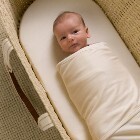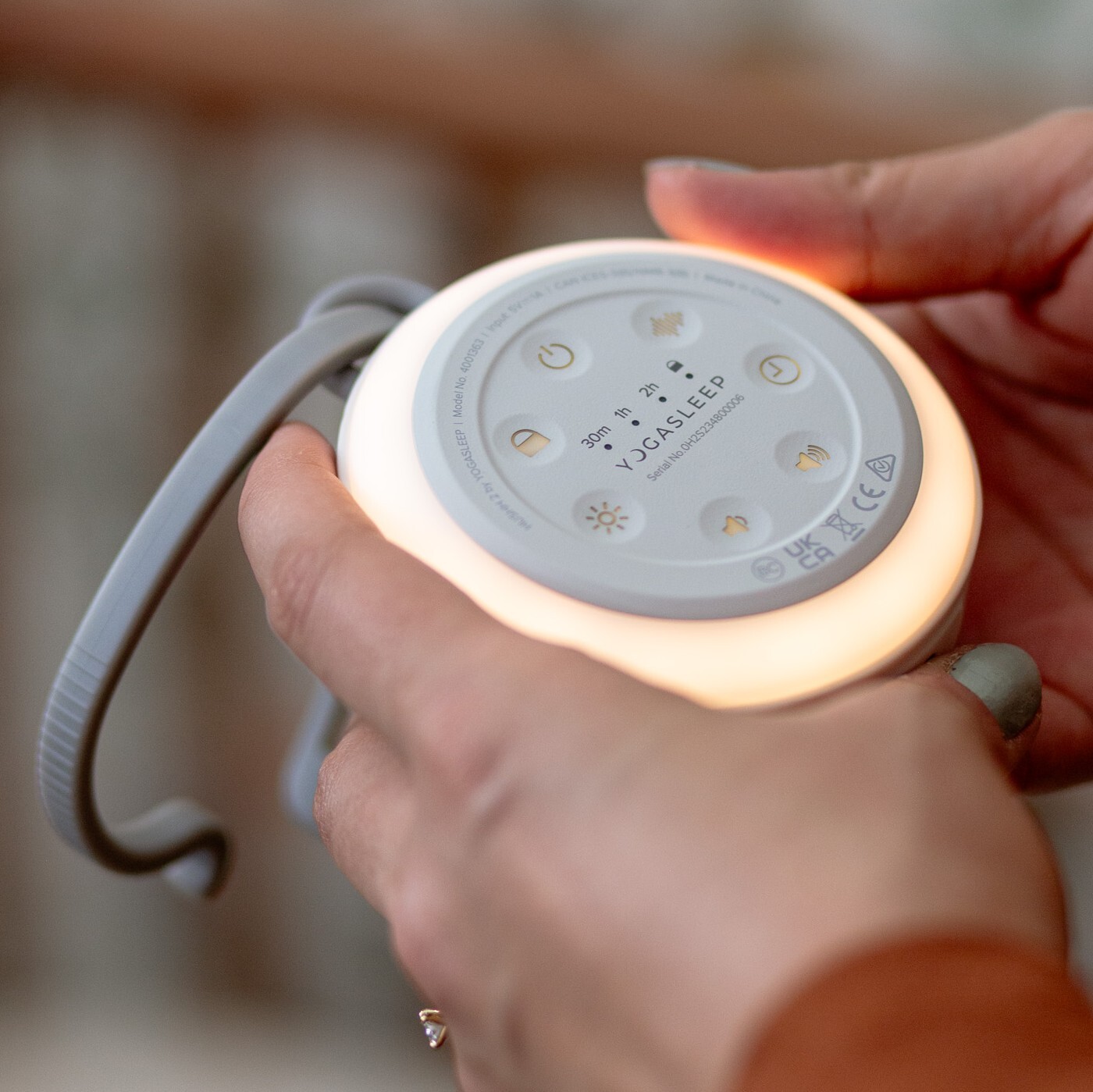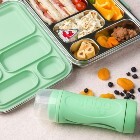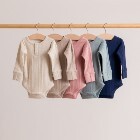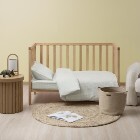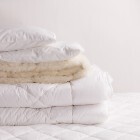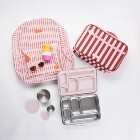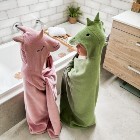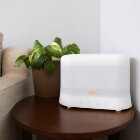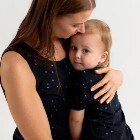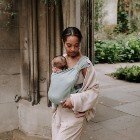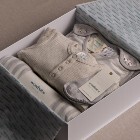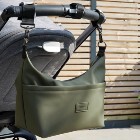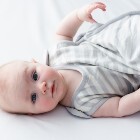Bed-Sharing
Please note we do not recommend bed-sharing. However we are providing this information that is available in many other countries to help parents who do choose to bed-share to reduce risk where possible.
Bed-sharing is when mother and baby share the same sleep surface, which must be a nice firm mattress. This is common practice in many cultures around the world, so it is a choice many families make regardless of all the safe sleep advice advising against it. Parents may also be choose to bed-share for parenting philosophy reasons. Whatever the reason for choosing to bed-share, please ensure you have all possible information and carefully follow all recommendations.
If you choose to bed-share or think you may bed-share on occasions, we strongly encourage you to follow the guidelines below rather than accidentally bed-share. This means making an informed decision to share the bed with your baby and making sure the space is safe with no pillows or blankets anywhere near baby.
Accidental bed-sharing is much more dangerous and poses a far greater SUDI risk, as adult bedding and pillows are likely to be in the bed. Accidental bed-sharing is when parents do not intend to have their baby share their bed but baby ends up asleep in the parent's bed due to illness, being unsettled or feeding.
It is common too for Mum to accidentally fall asleep while feeding baby in bed, which is a reason why safe sleep guidelines often state to feed in a chair. However falling asleep in a chair or on the sofa is also very common and considerably more risky than falling asleep next to baby where hazards such as adult bedding and pillows have been removed.
Unfortunately in New Zealand, there has been no detailed research into bed-sharing practices and there are no records kept or certainly not published for parents to be informed on the circumstances around unsafe bed-sharing and tragic deaths resulting from bed-sharing. However there have been plenty of highly publised coroner reports where babies suffocated on the sofa, a drunk or drugged parent rolled on baby and bed-sharing guidelines were not followed.
Bed-sharing is very dangerous for parents who smoked during pregnancy. Please do not consider any type of bed-sharing if you smoked during pregnancy and if anyone in the family smokes after baby is born.
Bed-sharing Guidelines:
While we do not recommend or advise you to bed-share, the guidelines for reducing risk when bed-sharing are as follows:
-
Smokefree home – particularly no smoking and sharing a bed with baby, or smoking during pregnancy – these greatly increase the risk of SUDI.
-
No alcohol, drugs or sedatives to be taken by anyone sharing a bed with baby.
-
Baby should ideally be breastfed
-
If baby was born prematurely or of low-birthweight it is NEVER safe to bedshare.
-
No swaddling in bed – there is a risk of overheating.
-
No pillows, blankets or duvets anywhere near baby.
-
Baby should always be placed on their back to sleep.
-
The sleep surface should be firm.
-
Babies should never sleep on a waterbed, pillow or couch (with or without adult supervision).
-
There should not be any space between the bed and adjoining wall where baby could roll and become trapped.
-
Likewise, the mattress should be tight fitting to the headboard and/or footboard.
-
Children under 1 year of age and pets should not share the same sleep space as baby.
-
Baby should never sleep in a hat, bonnet, head-band, with teething or any other necklaces or cords or attachments for dummies. These items can cause over-heating or be a strangulation risk.
-
If you use a separate sleep space for baby WITHIN your bed, this also must follow safe sleep guidelines. So the base must be flat and firm, no padding or pillow like sides, baby can breath fresh air even if up against the side and that no loose bedding is used. For example, Pepi-pod and Wahakura are an recommended safe sleep option in NZ, provided there is no risk of adult bedding or pillows covering the Pepi-pod / Wahakura and baby is ALWAYS returned to their Pepi-pod / Wahakura after feeding.
-
Padded baby nests are never safe for bedsharing. Be aware of misinformation about their claims of safety. They must only every be used for fully supervised day naps, similar to a play mat or swing.


